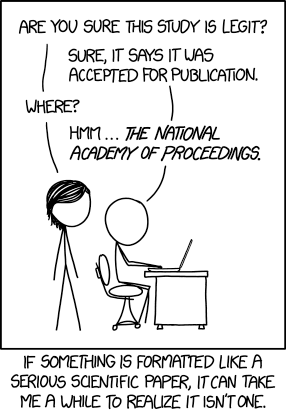Predatory publishing is an exploitative practice that uses the promise of fast, open access publication to extract money from authors and researchers. Often, predatory journals will charge high fees to publish in their journal, but provide little to no peer review, editing, or oversight of the content. In practice, this means they take money from (usually) well-meaning researchers but do not provide any of the services that a publisher is supposed to provide. This means that good research can languish in poor quality journals with little research impact, and that bad research can be easily published due to the lack of peer review or editing.
It is important to note that while most predatory publishers share certain characteristics, some of these characteristics are also shared with newly created journals and journals from developing countries. Reviewing the quality of a journal requires a careful examination and subjective appraisal of it, using your best judgment. It is also important to note that journal quality is not an indication of research quality. There are many good articles published in bad journals, and plenty of bad research published in journals with good reputations.

From xkcd.com
Adapted from Shamseer et al. (2017). Potential predatory and legitimate biomedical journals: can you tell the difference? A cross-sectional comparison. BMC Medicine. 15:28. DOI: https://doi.org/10.1186/s12916-017-0785-9
If you would like assistance evalauting journals, reach out to your liaison librarian. Librarians can help you with: